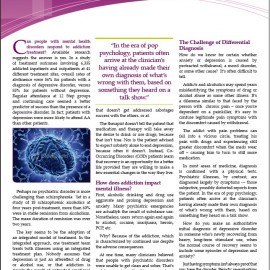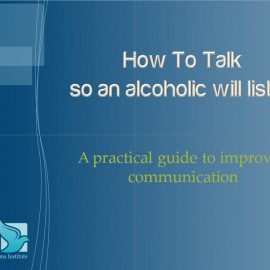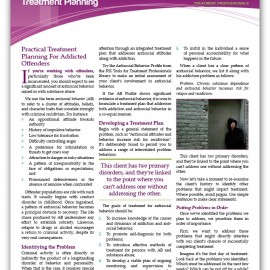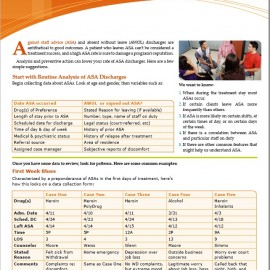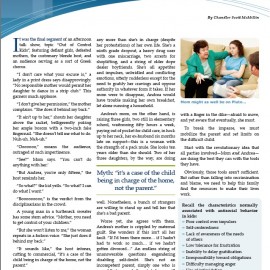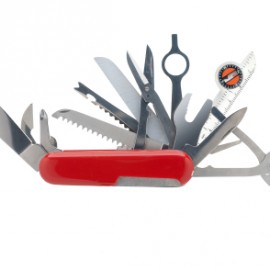Resources For
Defense: Externalization
Eventually, through painful experience, the externalizer recognizes that the secret of recovery is focusing on changing yourself, not others.
Topics: Alcoholic Defenses, defense mechanisms, intervention
Defense: Rationalization
Eventually, the rationalizer (through painful experience) realizes that instead of serving as a remedy, drugs and alcohol are actually making problems worse
Topics: Alcoholic Defenses, defense mechanisms, intervention
Critical Thinking
At one time, critical thinking skills were a required part of education in many schools. I have the impression that’s no longer the case. Too bad, because faced with a flood of contradictory arguments, we need them more than ever.
Topics: communication, Effective Communication with An Addicted or Alcoholic Person, negotiation
Dual Dilemma: When Addiction & Mental Illness Combine
The key to treatment success is an integrated approach: One treatment team treats both illnesses using an integrated treatment plan.
Topics: co-occurring disorders, counseling, depression, mental illness
Video Presentation: How to Talk so an Alcoholic Will Listen
If you love someone who is struggling with addiction or alcoholism, you can help their journey to recovery by learning some simple communications rules.
Topics: co dependency, communication, getting help
Treating the Antisocial Addict: Treatment Planning
The behavior of antisocial persons is a challenge to traditional substance abuse counseling. Offender populations are packed with antisocial clients. It helps to address these behaviors directly, beginning with the treatment plan.
Topics: addicted offenders, antisocial, co-occurring disorders, counseling, court-mandated, DUI/DWI, juvenile courts, personality disorders, treatment, treatment planning
De-Escalating Parent/Child Conflict
All successful negotiations depend on two outcomes, whether you’re dealing with your 15 year old, or mediating a border dispute in the Middle East.
Topics: adolescent addiction, family dysfunction, negotiation, parent child conflict
Lowering Your Residential ASA Rate: A Practical Guide
A patient who leaves ASA can’t be considered a treatment success, and a high ASA rate is sure to damage a program’s reputation. Analysis and preventive action can lower your rate of ASA discharges. Here are a few simple suggestions.
Topics: administration, ASA Rate, client census, clinical management, inpatient treatment, outcomes
The Rescuer’s Plight: Avoiding the Enabling Trap
Fifteen-year-old Andrea is out of control. She drinks, abuses drugs, and dances illegally at a strip club. What can Mom do about it? The answer is surprising.
Topics: adolescent addiction, enabling and provoking, family dysfunction, intervention, parent child conflict
Tools for Recovery
Once the support of the treatment program no longer surrounds you, dealing with life’s challenges can be overwhelming. That’s when tools for recovery count.
Topics: maintaining sobriety, Recovery Tools, tools for recovery




